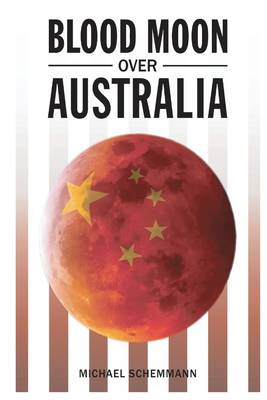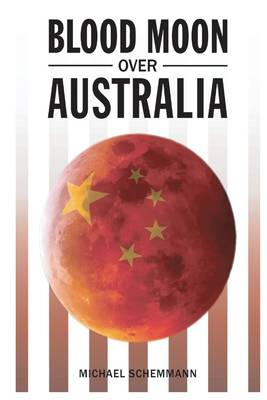
- Afhalen na 1 uur in een winkel met voorraad
- Gratis thuislevering in België vanaf € 30
- Ruim aanbod met 7 miljoen producten
- Afhalen na 1 uur in een winkel met voorraad
- Gratis thuislevering in België vanaf € 30
- Ruim aanbod met 7 miljoen producten
Zoeken
Blood Moon Over Australia
Chinese Invasion or Union with the United States
Michael Schemmann
Paperback | Engels
€ 9,45
+ 18 punten
Omschrijving
Remember the June 1944 Allied landings on D-Day in Normandy, France, and associated airborne operations under the command of US General Dwight D. Eisenhower, code named "Operation Neptune" (also "Operation Overlord"), which was the largest seaborne invasion in history of 3,100 landing crafts with 156,000 American, British, Canadian, some French, Polish and British Commonwealth forces landing on five beaches under cover of fire from 1,200 warships and 7,500 aircraft along a 50-mile stretch of the heavily fortified coast of France's Normandy region. Only China is the power today that can man and equip such an operation on the shores of Australia. How can such a Chines master plan be usurped, perhaps even turned into the opposite direction if not by Australia's Union with the United States, the world's superpower today. An alliance alone is unpredictably unreliable. China has become an Orwellian surveillance state under Xi Jinping's authoritarian rule, a brutal repression of the democracy movement in Hong Kong by repudiating the 1997 agreements with the UK, and the threat of China's war against tiny Taiwan, saying that "resolving the Taiwan question was an unshakeable commitment and he vowed to take resolute action to utterly defeat any attempt toward Taiwan independence." Even the thought and horror of life under Chinese rule of Australia's free and democratic, mainly white and Christian population, is revolting. The unstoppable military expansion of China pressing for control of the Western and Southern Pacific poses a threat to Australia that Australia cannot confront alone. The United States cannot cede the Pacific in whole or in part to China, either. In the event of an armed conflict, Australia must have a relationship with a power that can block and contain China and that has an imperative to do so. One defense, probably the only one, is the political and military reformation of Australia's alliance, namely Union into the United States discussed herein. Surveys confirm that "Australians fear attack from China almost as much as Taiwanese do" (The Guardian 08 July 2021). Australia's defence minister, Peter Dutton, said in April 2021 that the risk of conflict over Taiwan could not be discounted. Around the same time, the secretary of the Department of Home Affairs, Michael Pezzullo, said free nations were again hearing the beating drums towards conflict and needed to brace for the curse of war. Australians were asked whether they thought China would launch an armed attack on Taiwan, with 13% saying soon and 36% some time, or a total of 49%. Australia's outgoing secretary of the foreign affairs department, Francis Adamson, a former ambassador to Beijing, characterized China, despite being a great power China was still dogged by insecurity as much as driven by ambition has a deeply defensive mindset, perceiving external threats even as it pushes its interests over those of others. Insecurity and power can be a volatile combination, more so if inadvertently mishandled. We need to understand what we are dealing with.
Specificaties
Betrokkenen
- Auteur(s):
- Uitgeverij:
Inhoud
- Aantal bladzijden:
- 114
- Taal:
- Engels
Eigenschappen
- Productcode (EAN):
- 9798412579320
- Verschijningsdatum:
- 4/02/2022
- Uitvoering:
- Paperback
- Formaat:
- Trade paperback (VS)
- Afmetingen:
- 152 mm x 229 mm
- Gewicht:
- 163 g

Alleen bij Standaard Boekhandel
+ 18 punten op je klantenkaart van Standaard Boekhandel
Beoordelingen
We publiceren alleen reviews die voldoen aan de voorwaarden voor reviews. Bekijk onze voorwaarden voor reviews.











